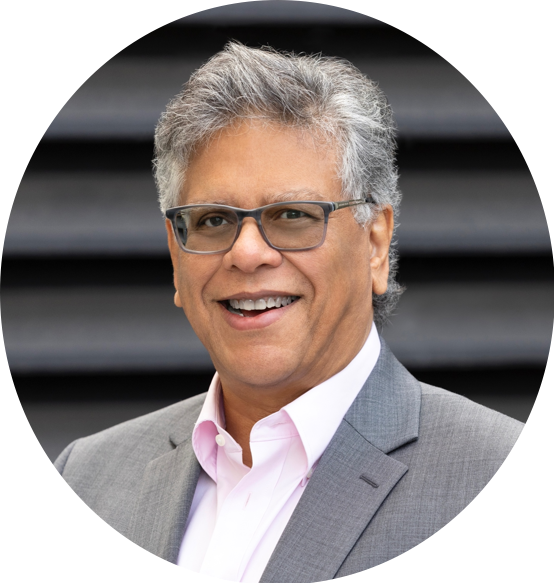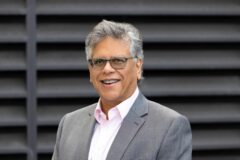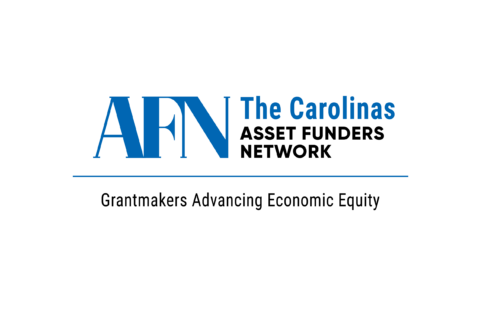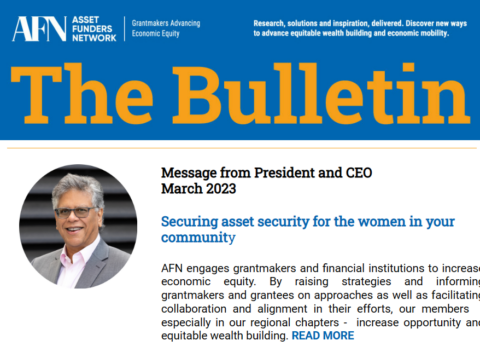
FROM THE PRESIDENT AND CEO
April 2024
This year’s AFN Conference strongly affirmed that our membership is committed to the long journey to achieve equitable economic justice. To those able to participate, the three days were inspirational and revitalizing. Regardless of loud, threatening voices in society, we reaffirmed our values and vision of justice and increased our understanding of how we contribute to that vision of justice.
In celebrating our 20th Anniversary, we shared feedback and observations from leading members of our community, including Brandi McHale, Head of Community Investing and Development at Citi and President of Citi Foundation, one of our founders. Brandi set the table: AFN is built on the notion that efforts increasing income are necessary but insufficient to achieve resilient economic security or justice, that the vision requires both philanthropic investment and financial institutions who provide the “plumbing” for change and can be engaged to provide better products, and that AFN was the first to understand that to achieve the vision required systemic change.
Qiana Thomason, the CEO of Health Forward in Kansas City, reinforced that perspective affirming the theme of the conference that a vision of economic justice required intentional investment, commitment to learning, and the resolve to assume the risk to achieve change and create an abundant economy that could result if we fully included everyone. Indeed, it is impossible to move toward economic justice without explicitly naming who has been excluded and how to undo those systemic barriers.
But undoing systemic barriers that have othered many communities— because of their race, skin color, ethnicity, gender, sexual orientation, gender identity, or disability—is not a top-down solution. To be effective, all of us need to engage with and listen to these communities if we are to understand the relevant ideas of wealth, stability, and community and how asset-building efforts can be a positive within the economy and the community. Whether it’s employee ownership, community renewable power, housing education, or health, a funder will be best served to understand what resonates, learn what data is needed, and identify what investments can be catalytic to achieve those goals.
A significant aspect to reach these goals involves investments and strategies that are reparative in response to the present as well as decades and centuries of intentional harm visited on Black, Indigenous, Latinx, Asian, and LGBTQ populations. If we truly believe in the potential of every child and every person, we need to intensify and accelerate change away from the continued legacies of white privilege and intentional disinvestment in inner cities and many rural communities, especially where people of color live. A key takeaway is to commit to needed, meaningful reparations payments. We also need to increase advocacy to invest in long-term investments such as Baby Bonds and immediate corrective actions such as guaranteed income, affordable home ownership, debt-free college, and broader retirement solutions. These solutions are all possible in an expanding economy that is inclusive and taxed equitably. As the panel made clear, we need to be intentional about our vision of justice so that Black people can “win” in a transformed economy and that the growth from winning in an inclusive, abundant economy will be that nobody needs to lose – to be othered and harmed.
And as Mendi Blue Paca, CEO of Fairfield County Community Foundation, succinctly challenged all of us: If philanthropy does not engage in public policy advocacy, are we prepared for what happens?
There are toxic forces out to rebuild and renew a caste system that returns to the blatantly white male supremacy of America’s past. Standing by and watching is not acceptable. On a host of issues from tax policy to Baby Bonds, Guaranteed Income as a universal supplement to universal affordable child care, from public investment in post-secondary education to universal health care and from investment in fostering small business success to the ways our communities convert from fossil fuel to renewable energy affordably for every household, philanthropy must affirmatively engage in these systemic public policy issues.
Our final speaker Anna Gifty-Opoku-Agyeman was clear that our vision of a just, inclusive economy can only be realized if our intentional efforts today take root to change the realities for Gen Z and to realize truer economic justice for the generations to follow. She challenged us to support long-term and generational change, listen to new voices, and be willing to support new ideas and new voices. It was a rousing and optimistic look forward to what is possible. I came away energized with a sense of embracing the “new, brave and awesome” voice to help build a future that embraces economic security and asset opportunities for all communities.
At AFN, that vision of economic justice is essential to our point of view across all members and in our regions. Explore that vision within your institution, network with your peers, find your role, commit, and frame your actions in shared values, and act intentionally! If you are still considering joining AFN, I invite you to engage. If you are a member – thank you for the success thus far over these 20 years. And if you are investing in a practitioner or advocate for economic justice, let us know of your efforts as catalysts of progress! We look forward to the next 20 years achieving a more equitable and just economic future together.



